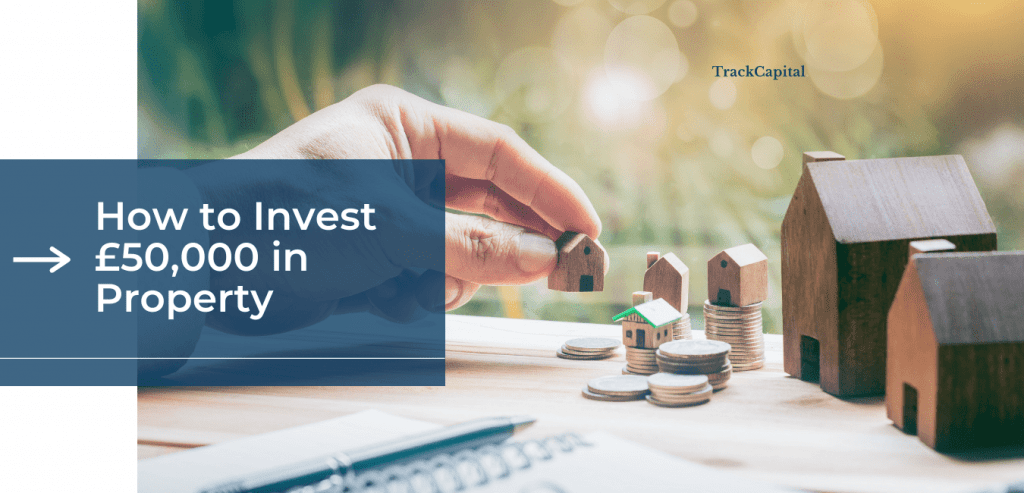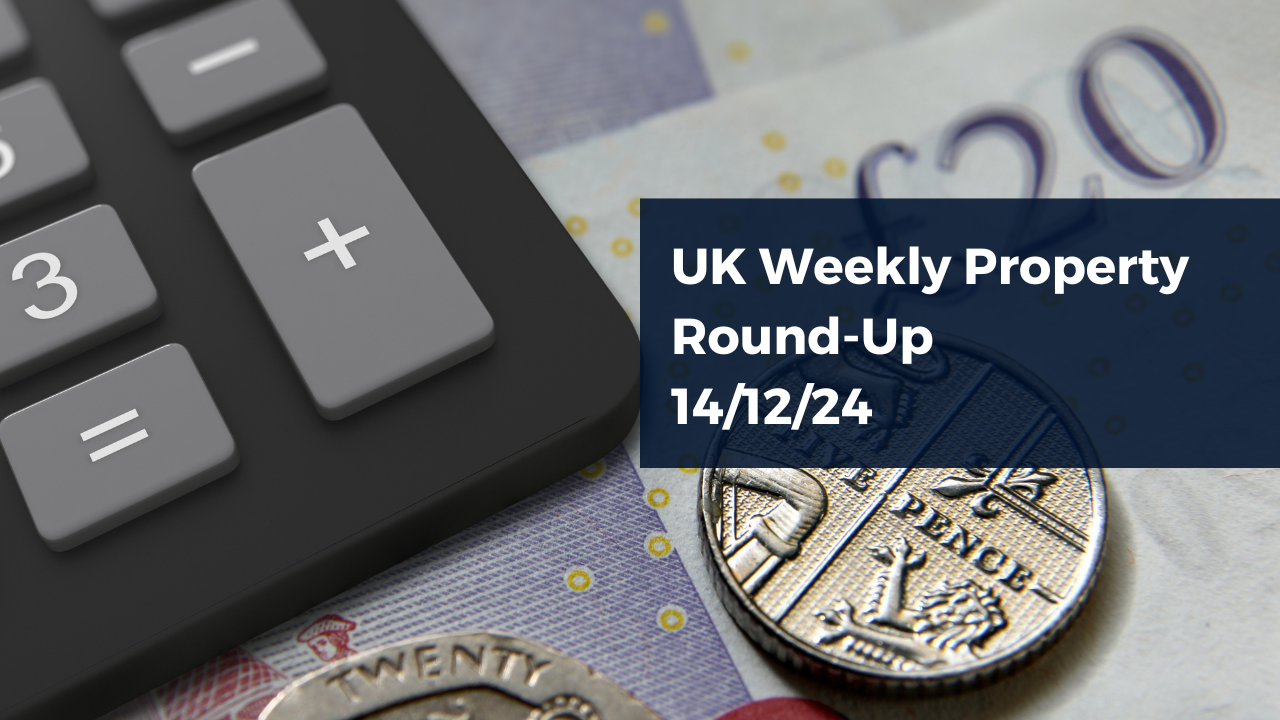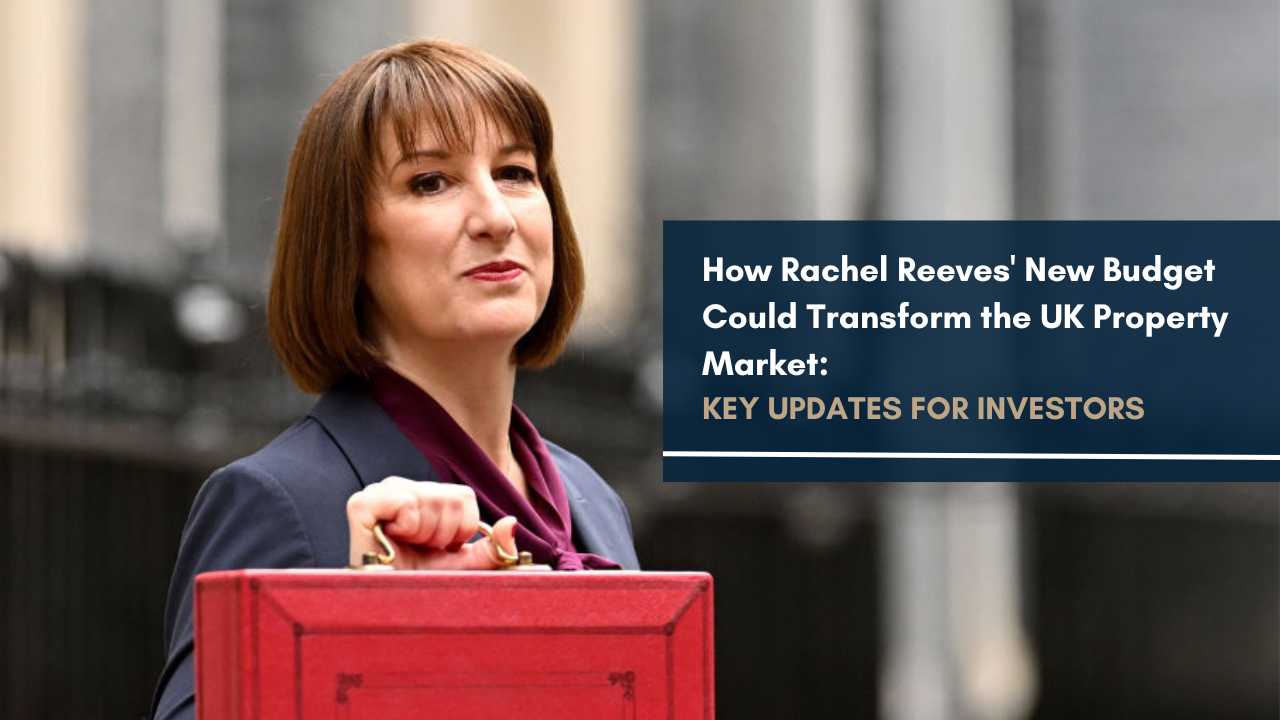With an abundance of information online, it is hugely challenging for new investors to know where to begin. This article will take you through how to get your first step into the world of property investment and exactly how to invest your £50,000 lump sum.
We actually discussed this topic in a recent podcast. Spotify users can listen to the podcast using the audio below, or alternatively, check out the episode on our Anchor page to find links for other streaming platforms.
In the podcast, our directors, Nick and Tobi, discuss how to invest £50,000 in property. You’ll learn about the best way to turn your money into a growing property portfolio, with clear and comprehensive explanations of the strategy to employ, factors to consider, and potential financial gains. However, for users not able to listen to our podcast or for those who prefer a written version, please read on.
So, why £50,000?
From our conversations with new clients, £50,000 appears to be the average amount an investor has when they begin their property journey. This is an excellent starting point because £50,000 is a large enough sum to allow a new landlord to begin a lucrative investment journey.
Although individuals can certainly break into the property market with less, this balance will afford the luxury of a property with a high rental yield and strong capital growth.
Why property?
Naturally, any smart investor will consider all of the available investment options before delving into the world of property. For example, a lump sum of £50,000 could be placed into good stocks or cryptocurrency. However, there are many reasons why we believe property reigns supreme over these alternatives.
Firstly, the purchase of a property can be leveraged using a mortgage. Meaning, that to purchase a £100,000 investment property, an individual may only actually need a £25,000 cash deposit. The remaining balance can come from a mortgage loan. Whilst mortgages undoubtedly attract their own distinct risks, they allow for much more substantial investments, which would not be possible in other sectors.
Secondly, property is reliable. Like any asset, there are fluctuations when the data is considered on a granular scale, but historically the property market has shown a gradual, consistent upward trend. One reason for this is that land is finite, so as space becomes more limited, the price progressively increases.
Additionally, there is comprehensive, robust data and analytics surrounding the property. The information is transparent and accessible, meaning every investor can make accurate and well-researched predictions about their investment potential.
Finally, property provides multiple opportunities, making it a diverse option for the fluctuating UK economy. The most common choice is the buy-to-let mortgage, where an investor will purchase a home to lease to a tenant, providing a regular monthly income. Alternatively, an investor may choose to sell the home, generating a lump sum payment. There are many other options for property, including investing in commercial property or short-term holiday lets.
How to invest £50,000 in property?
So now we understand why £50,000 is a good starting sum, and why property is an excellent choice for your investment, let’s consider the best strategy for investing your £50k into the property market.
Step 1: Opt For Off-Plan Property
A city centre, off-plan property is the best place for any investor to begin. An off-plan home is one that is purchased before it is built.
Developers are willing to offer discounted rates for these purchases, as they offer an immense amount of security. Aside from a reduced cost, opting for an off-plan home gives the investor an element of choice. Dealing with the developer at this early stage will allow investors to choose the most lucrative apartment.
This might be because it is south-facing, has a particularly large balcony, or comes complete with a parking space. These added features allow landlords to charge a premium with regard to both rent and resale prices.
Step 2: Seek The Perfect Location
With a limited pot of money, choosing the right location is essential. We believe Liverpool or Manchester provide the ideal option, as investors can comfortably purchase a home in either city for around £150,000. This figure will afford any landlord a centrally located apartment with tremendous rental potential.
Choosing a city undergoing regeneration is crucial, as it shows the area is on an upward trajectory. Therefore, the resale value will continue to increase, along with the demand for high-quality rental properties.
Step 3: Research The Location’s Capital Growth & Rental Yield
Rental yield refers to the profit made from a rental property over a year. It is presented in a percentage format and carefully balances the value paid for the home against the yearly sum it generates. Many investors aim for a yield between 5% – 8%.
Notably, rental yields are substantially lower in London, due to the astronomical cost of housing. Conversely, capital growth refers to the increase in property value through the period of ownership. Investors will closely follow these trends to allow them to understand whether it is an appropriate time to sell.
Earlier in this article, we recommended the cities of Manchester and Liverpool. Investors could choose a cheaper city such as Bradford or Hull, where they may even be able to secure two properties with an initial investment of £50,000. It may even be the case that the yields are higher in these cities due to the lower cost of housing. However, capital growth will be limited, and therefore growing equity in the homes will be extremely slow. Building equity allows investors to withdraw money from the home, purchase more property, and diversify their assets.
So, investing in properties and areas with strong capital growth is the only way to build a strong portfolio.
Step 4: Work With A Property Investment Company
Property investment companies have access to properties that the general public does not. Most off-plan homes are not marketed through websites such as Rightmove or Zoopla.
Instead, developers often choose to only partner with property investment companies, who they can rely on to provide high-quality, reliable landlords. Investment companies work hard to cultivate these relationships, with each party providing a service the other requires. Therefore, by working with an investment company, you will access the latest off-plan homes that you would not otherwise have even been aware of.
Secondly, investment companies have strong negotiation power. Due to the stream of regular buyers they introduce, developers are often willing to provide the homes at heavily discounted prices. Without the backing of an investment company, individuals will struggle to achieve the same discounts. As well as these heavily discounted prices, investment companies can negotiate bonuses such as stamp duty contributions and furniture packages.
Finally, the expertise in both property and locations are priceless. Especially for investors who do not live in the same city or country, working with a dedicated team will ensure you invest your capital wisely.
An example of this strategy in action
Let’s consider how the £50,000 investment will realistically play out, and how this can lead to growing your property portfolio further.
As a property investment company, we can often secure a discount of more than 10% on off-plan properties purchased directly from an investor. For the purposes of this explanation, a conservative estimate of a 10% discount will be used.
Consider a city centre apartment valued at £150,000, which is more than reasonable for a buy-to-let in Manchester or Liverpool. We would be able to secure this property for £135,000. A 30% deposit for the home (again, conservative) amounts to £40,500. This leaves you with £9,500 to cover legal costs, stamp duty and any decoration or furniture package you would like to include in the property.
Now, let’s look at the capital growth of the home. Consider that it takes one year from the home’s purchase to completion, and then you rent the property out to tenants for another two years. Savills have predicted a 27.3% growth in property values in Liverpool over the next five years. Again, using a more moderate estimate, we will consider the annual increase to be 4%. Meaning, over the 3 years, the property’s value will increase by 12%. Therefore, by year 3 the property will be worth £168,000.
So, a home purchased for £135,000 is now worth £168,000, meaning you now have £33,000 worth of equity in the property. Additionally, two years of rental income will be generated as passive income during this period.
Building a Robust Portfolio
Most landlords choose a buy-to-let property to begin their investment journey. The steady monthly rental provides them with an additional income, whilst the property appreciates in value in the background. Once they have gained enough equity in the home, they can then withdraw and inject it into a new property, growing their portfolio with relatively little work.
Considering the above example, the £33,000 equity could be withdrawn and used for a deposit on a smaller home. We work closely with investors to ensure they choose a second investment home that complements their first, cleverly diversifying their portfolio. And so, by using this method of leveraging finance, investing and then re-investing the profits, a property investor with just £50,000 at the start can build a burgeoning property portfolio in a relatively short period of time.
£50,000 Investment Recap
- £50,000 is a great starting point for investors, allowing them to purchase a centrally located apartment attractive to renters using their budget as the deposit for a mortgage.
- A central off-plan property in a city undergoing regeneration, such as Manchester or Liverpool, is the wisest investment.
- Although rental yield is important, the growth of a property’s value will allow for the fastest portfolio growth.
- Working with a property investment company will allow for discounted rates and access to properties not advertised online. Use this to your advantage to secure the best possible deal and maximise your returns.
- As your initial property appreciates in value, use the equity earned as the deposit for your next buy-to-let investment. Then, keep repeating this method to continue growing your portfolio over time.
- Wondering how much money you need to invest in different types of property? Read our guide for more information.
For more advice, contact Track Capital at info@trackcapital.co.uk.
Dive Deeper
How To Invest £100k In Property




































